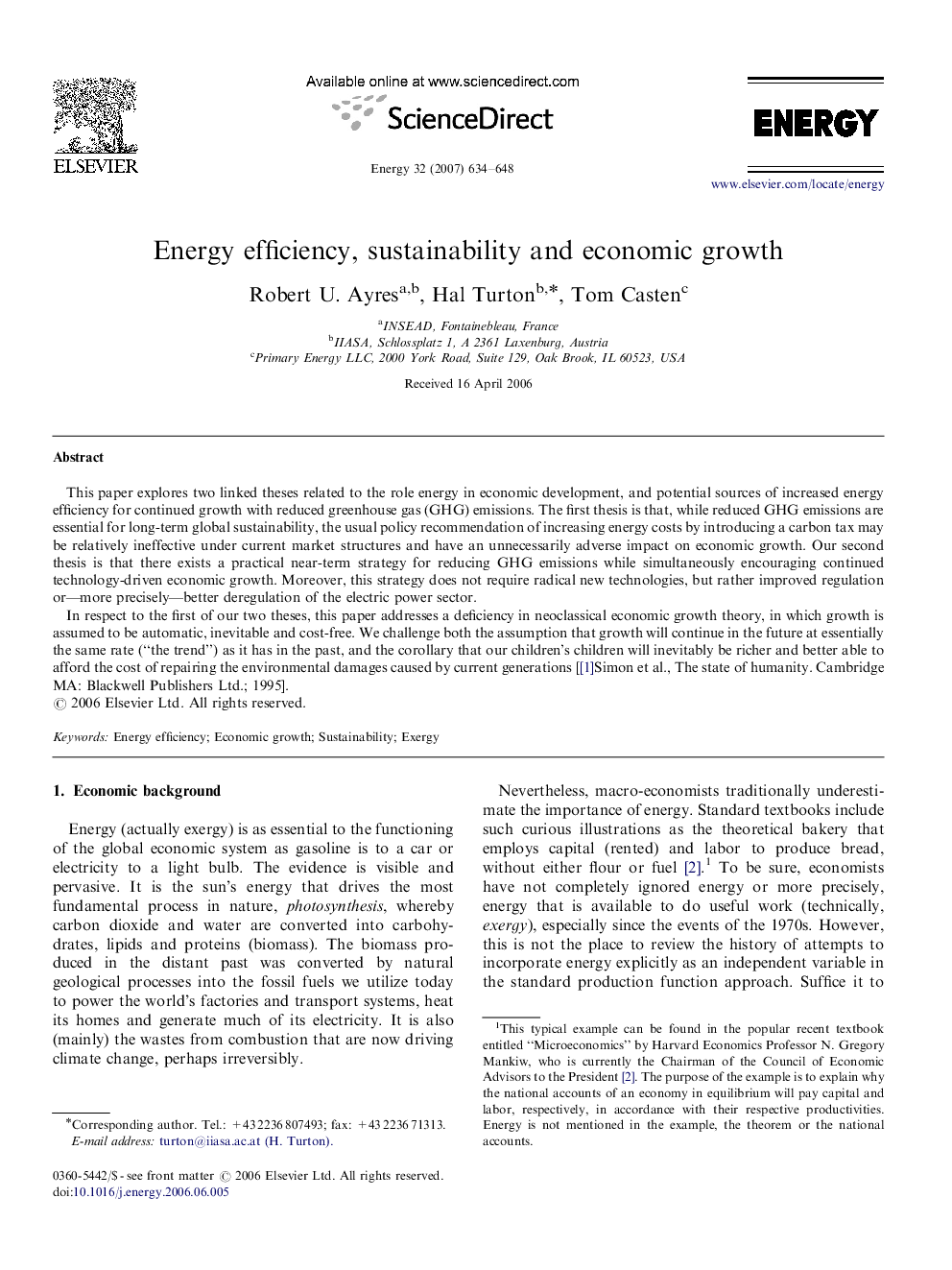| Article ID | Journal | Published Year | Pages | File Type |
|---|---|---|---|---|
| 1735841 | Energy | 2007 | 15 Pages |
This paper explores two linked theses related to the role energy in economic development, and potential sources of increased energy efficiency for continued growth with reduced greenhouse gas (GHG) emissions. The first thesis is that, while reduced GHG emissions are essential for long-term global sustainability, the usual policy recommendation of increasing energy costs by introducing a carbon tax may be relatively ineffective under current market structures and have an unnecessarily adverse impact on economic growth. Our second thesis is that there exists a practical near-term strategy for reducing GHG emissions while simultaneously encouraging continued technology-driven economic growth. Moreover, this strategy does not require radical new technologies, but rather improved regulation or—more precisely—better deregulation of the electric power sector.In respect to the first of our two theses, this paper addresses a deficiency in neoclassical economic growth theory, in which growth is assumed to be automatic, inevitable and cost-free. We challenge both the assumption that growth will continue in the future at essentially the same rate (“the trend”) as it has in the past, and the corollary that our children's children will inevitably be richer and better able to afford the cost of repairing the environmental damages caused by current generations [[1]Simon et al., The state of humanity. Cambridge MA: Blackwell Publishers Ltd.; 1995].
